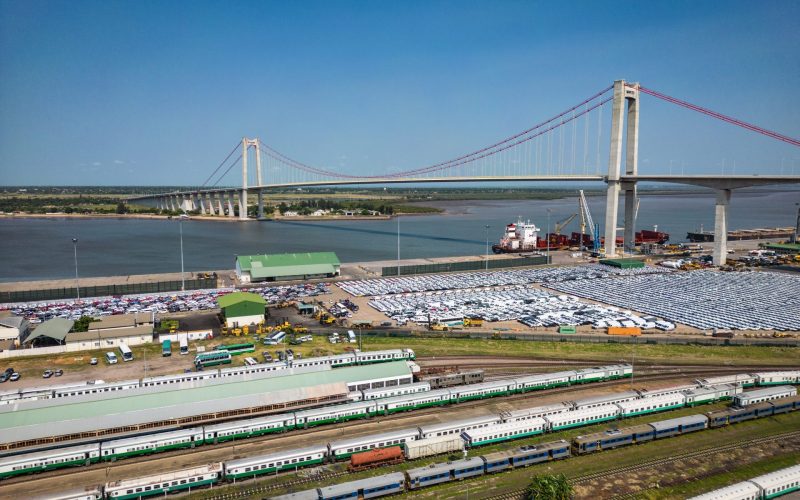Agoa is a non-reciprocal preferential trade scheme whereby the US offers the 38 eligible countries (including all Southern Africa Customs Union member states) duty and quota-free access to its market. The scheme covers more than 6000 products.
The forum is meant to celebrate Agoa’s achievements and seek to help the beneficiaries maximise existing market access opportunities, and involves Africa’s business community as well as the civil society organisations. While Agoa has had a very positive effect since it came into force in 2001, it is high time African countries started thinking about the future of their trade relationship with the US beyond 2015, when the current arrangement expires.
This is imperative, particularly for Sacu countries that are among the biggest Agoa beneficiaries. Though Sacu is the US’s second largest trading partner in Africa (Nigeria, whose exports are mainly petroleum products, occupies the first spot), there is no contractual agreement to guarantee and extend the market access opportunities they currently enjoy.
Further, the current relationship does not include the fastest growing area of trade, namely trade in services. Nor are there legally binding pacts to regulate important issues in bilateral economic relations, especially investment and intellectual property rights.
The US-Sacu free trade agreement (FTA) negotiations that began in June 2003 aimed to address this situation. Through the FTA, Sacu sought to achieve Agoa-plus liberalisation (by locking in and possibly extending current market access); address non-tariff barriers affecting their US-bound exports; spur regional integration in Sacu; and strengthen relations with the US, possibly as an insurance against potential failure of the Doha Round.
The US, on the other hand, aimed to use the FTA to eliminate barriers to its goods and services exports in the Sacu market, strengthen intellectual rights, build alliances for the WTO negotiations, and level the playing field vis-à-vis the European Union, which benefits from the Trade, Development, and Cooperation Agreement they signed with SA.
However, owing to differences between the parties on a range of issues, including the scope and anticipated depth of commitments, the parties finally decided in April 2006 to abandon the FTA in favour of a less contentious and politically palatable piecemeal approach (which they hope will lead to a fully-fledged FTA in future).
In terms of this plan, Sacu and the US will sign a Trade, Investment and Development Cooperation Agreement (Tidca) that would enable them to consult one another with a view to facilitating two-way trade and investment, conclude mutually beneficial agreements, and work towards reaching an FTA. The parties are reportedly making headway and were expected to sign the Tidca on the margins of the Agoa Sixth Forum.
While the Tidca idea seems workable, there is a danger that it may end up replacing the original ambition to have an FTA instead of being a necessary building block towards it. There are concerns that it might simply provide an excuse for failure to resume negotiations when the US Trade promotion Authority is renewed in future.
To be meaningful, the Tidca should have a clear agenda on how the parties envisage the resumption of actual FTA talks. Sacu countries, in particular, should ask themselves whether they intend to wait for Agoa to expire — in which case they will have less bargaining power — before they consider the FTA or not.
In my view, it would be in Sacu’s interest to actually drive the Tidca process to ensure that they lay a solid foundation for an FTA whose terms are favourable to them. The argument that services and trade related issues should be excluded from the FTA because the region does not enjoy harmonised policies is beginning to ring hollow in light of the SADC-EU Economic Partnership Agreement negotiations. All Sacu countries have no objections to negotiating on these issues, barring SA and Namibia. Tellingly, even Lesotho, a least developing country that is not required to make any commitments on services and regulatory issues in terms of WTO rules, is apparently not threatened by them.
Clearly, the Agoa Sixth Forum was a good opportunity for both celebration and deep reflection, especially for Sacu. African countries do not have much luxury to procrastinate — the Doha Round remains semi-paralysed and Agoa and even the Generalised System of Preferences (another preference scheme catering for developing countries in general, not just Africans) are not permanent. Therefore Agoa should not be seen as a viable alternative to a contractual agreement, which typically should have a development component.
Finally, it is not clear which course Agoa beneficiaries will take post-2015, but what is certain is that unilateral preference schemes have an expiry date.








